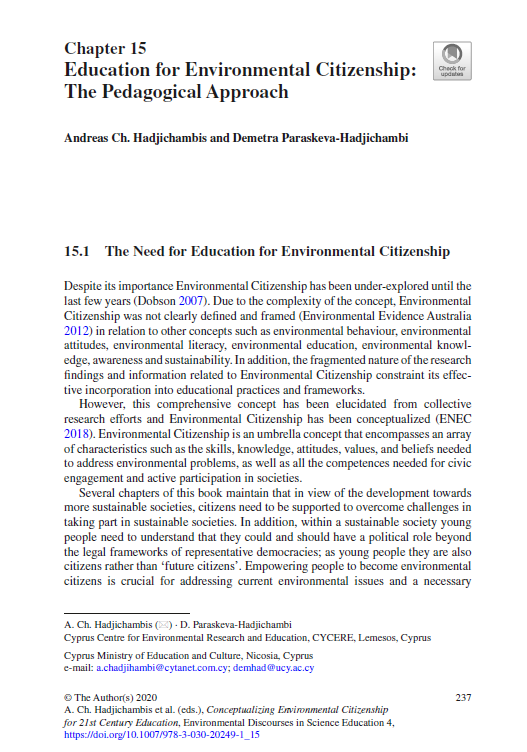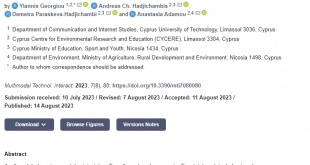Andreas Ch. Hadjichambis and Demetra Paraskeva-Hadjichambi
Abstract:
Contemporary and urgent environmental problems need to be addressed through Education for Environmental Citizenship. This chapter proposes a specific model of Education for Environmental Citizenship which includes the outputs, dimensions, scales and spheres of Environmental Citizenship. A specific pedagogical approach is elaborated which can promote the Education for Environmental Citizenship Model (EEC Model). The chapter also draws on the pedagogical landscape of Education for Environmental Citizenship and describes the stages and the steps of this integrated and holistic pedagogical approach, namely: Inquiry, Planning actions, Civic participation, Networking & Sharing in Scales, Sustain Environmental & Social Change, and Evaluation & Reflection. The suggested pedagogical approach is one of the possible venues that could promote Education for Environmental Citizenship. Finally, this chapter discusses the need for curriculum and learning materials for fostering Education for Environmental Citizenship. It argues for the crucial role of the educational institutions and of the teachers and teachers’ professional development towards the adequate establishment of Education for Environmental Citizenship.
Μπορείτε να βρείτε εδώ περισσότερες πληροφορίες για την πιο πάνω δημοσίευση

 Κυπριακό Κέντρο Περιβαλλοντικής Έρευνας & Εκπαίδευσης – Κυκπεε
Κυπριακό Κέντρο Περιβαλλοντικής Έρευνας & Εκπαίδευσης – Κυκπεε




